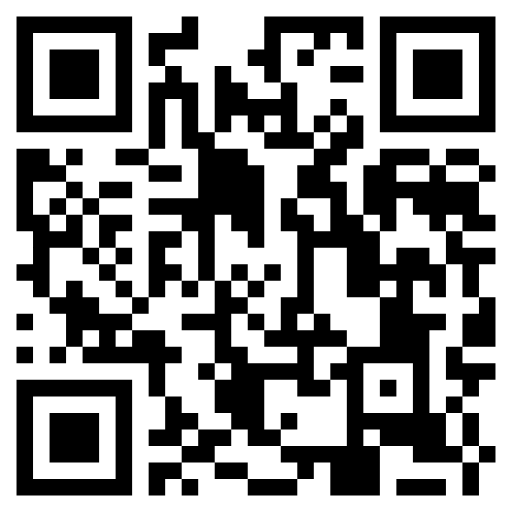Launching Rockets in Science Class
05 Dec 2024
"3, 2, 1—Launch!"
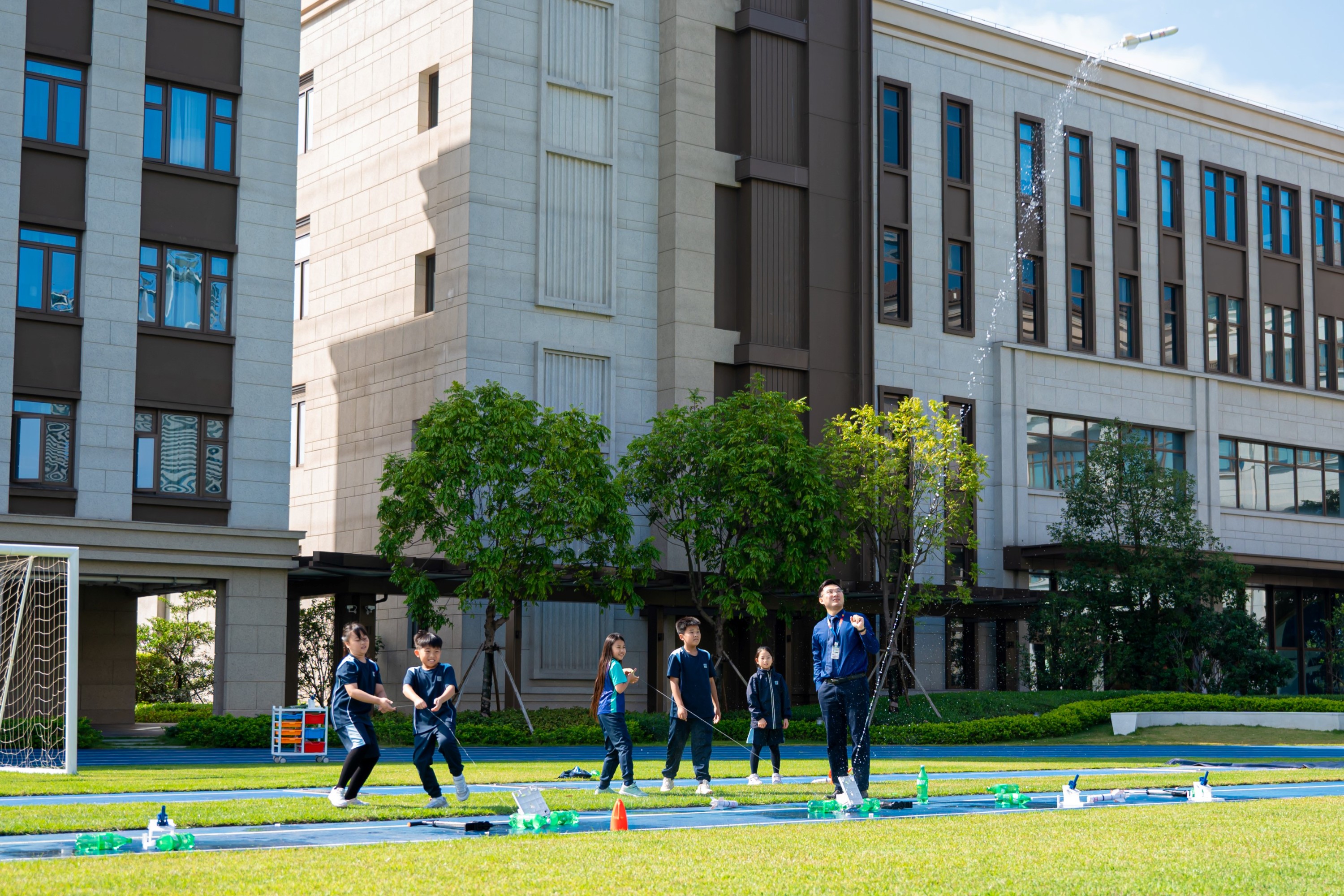
On the playground, a group of young scientists eagerly counted down to launch their "water rockets." Joyful cheers filled the campus as everyone witnessed a truly magical moment.
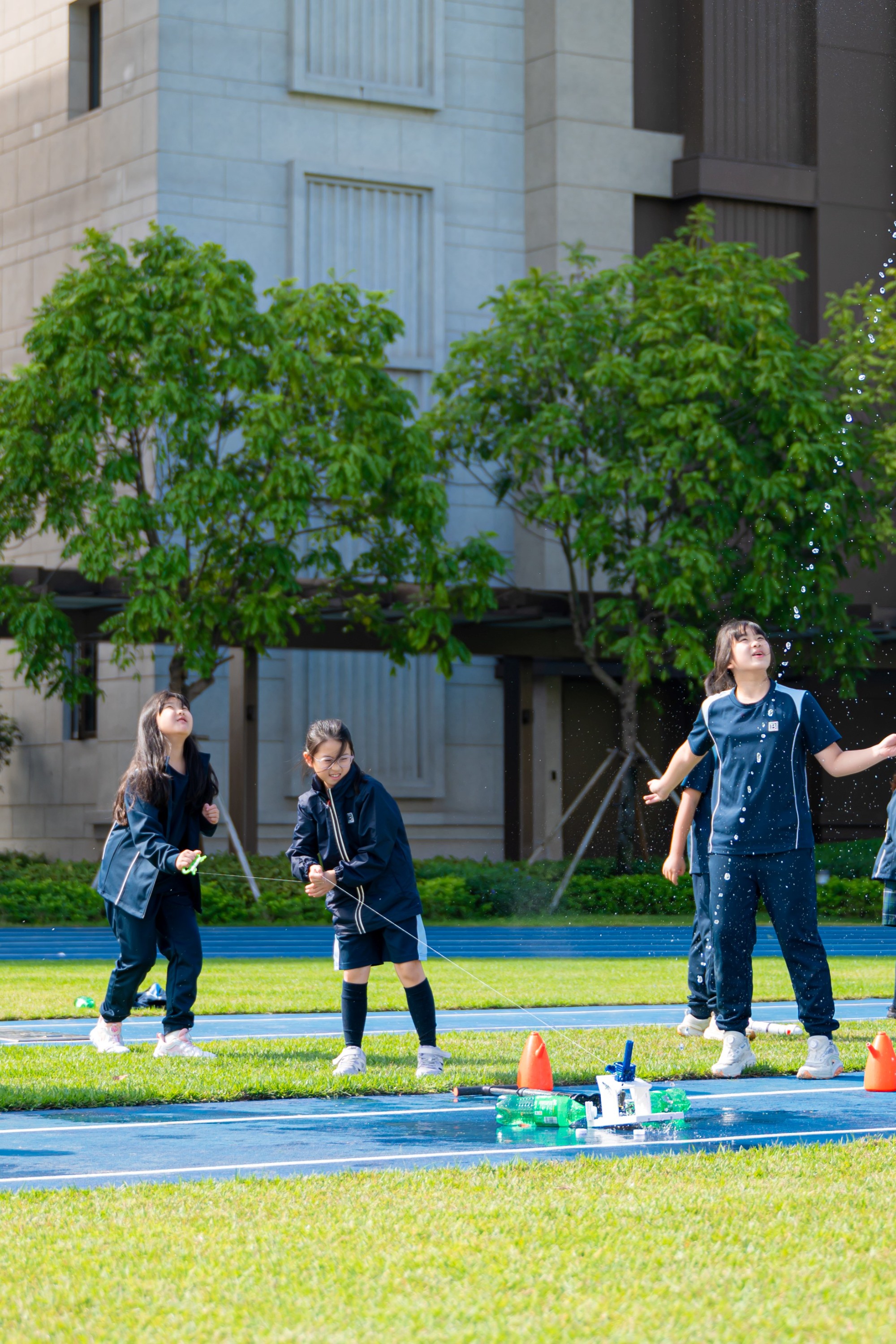
This was no ordinary science lesson. The students were exploring the concept of "energy transformation" through hands-on experiments.
Making Our Own Water Rockets
In this Grade 4 science class focused on energy, the students progressed from learning about various types of energy to understanding energy transfer and conversion. They quickly applied their knowledge to real-life examples, such as how an electric iron converts electrical energy into heat and how knocking on a door transforms kinetic energy into sound energy.
However, the concept of "potential energy" is challenging for them to understand through everyday experience.
To address this, Ms. Diana Li, our Primary Science Lead, and Mr. Jackie Lao, our Science and STEAM teacher, designed a cross-disciplinary project involving water rockets. This project enabled students to grasp the basic principles of energy transformation. They explored concepts such as potential energy, kinetic energy, air resistance, and Newton's laws of motion through hands-on experience.
Before the experiment, the teachers guided the students in understanding the principles behind the activity. They encouraged the students to think about how energy transforms at each stage.
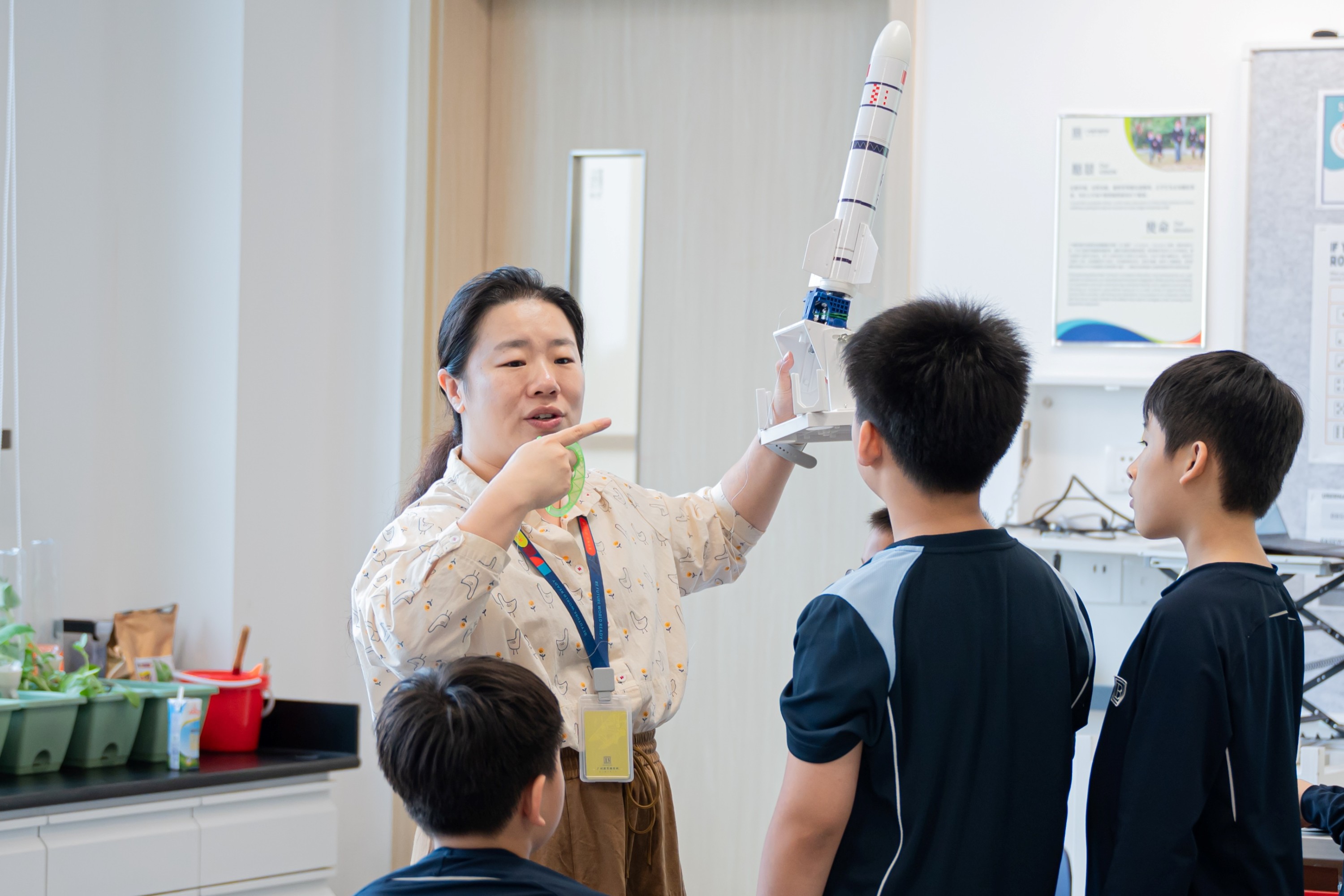
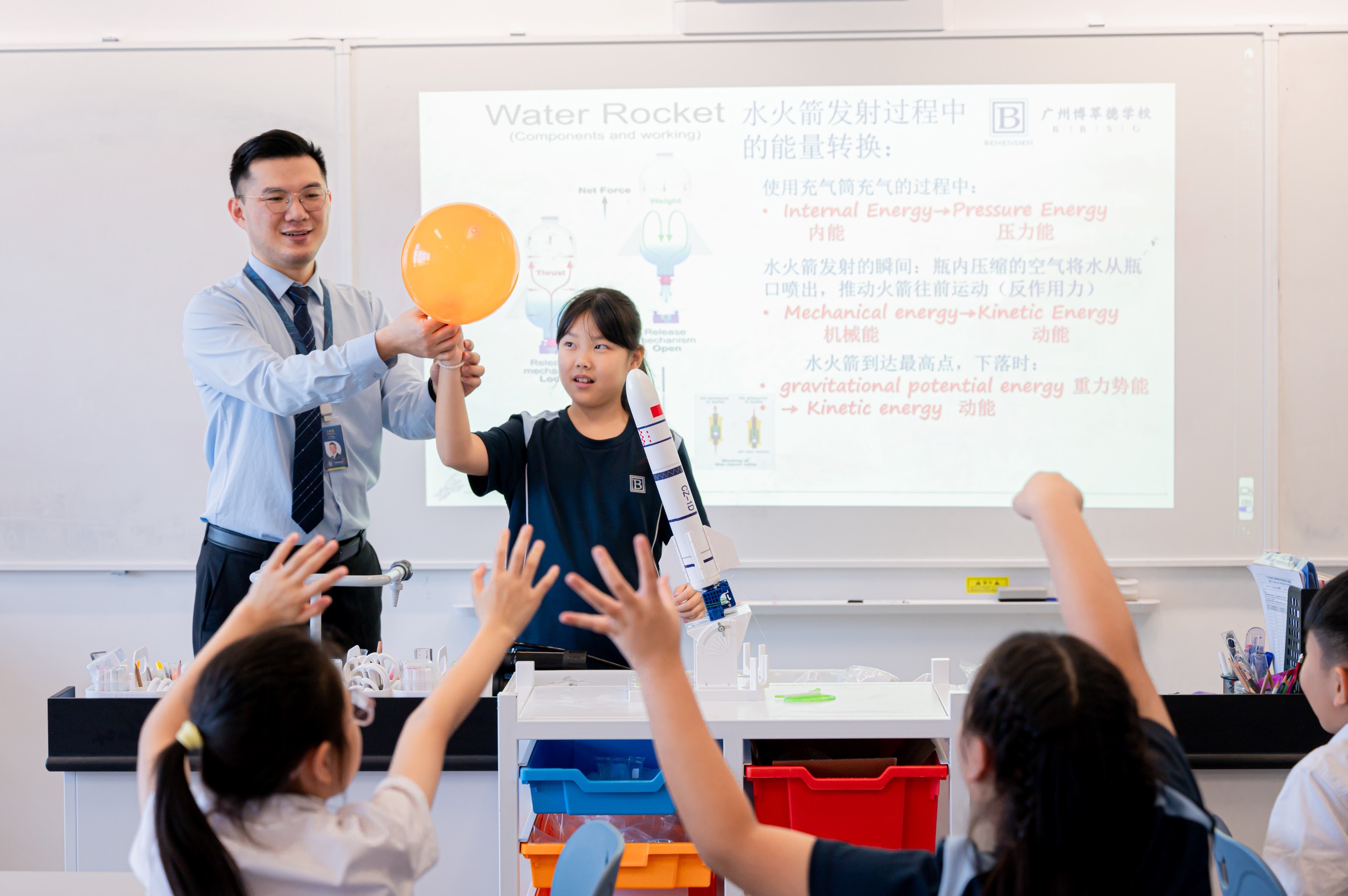
This exploration sparked the students' curiosity: How could they launch the rockets higher and farther? Would air pressure, launch angle, or other factors impact the results?
The students were eager to find the answers through practical exploration.
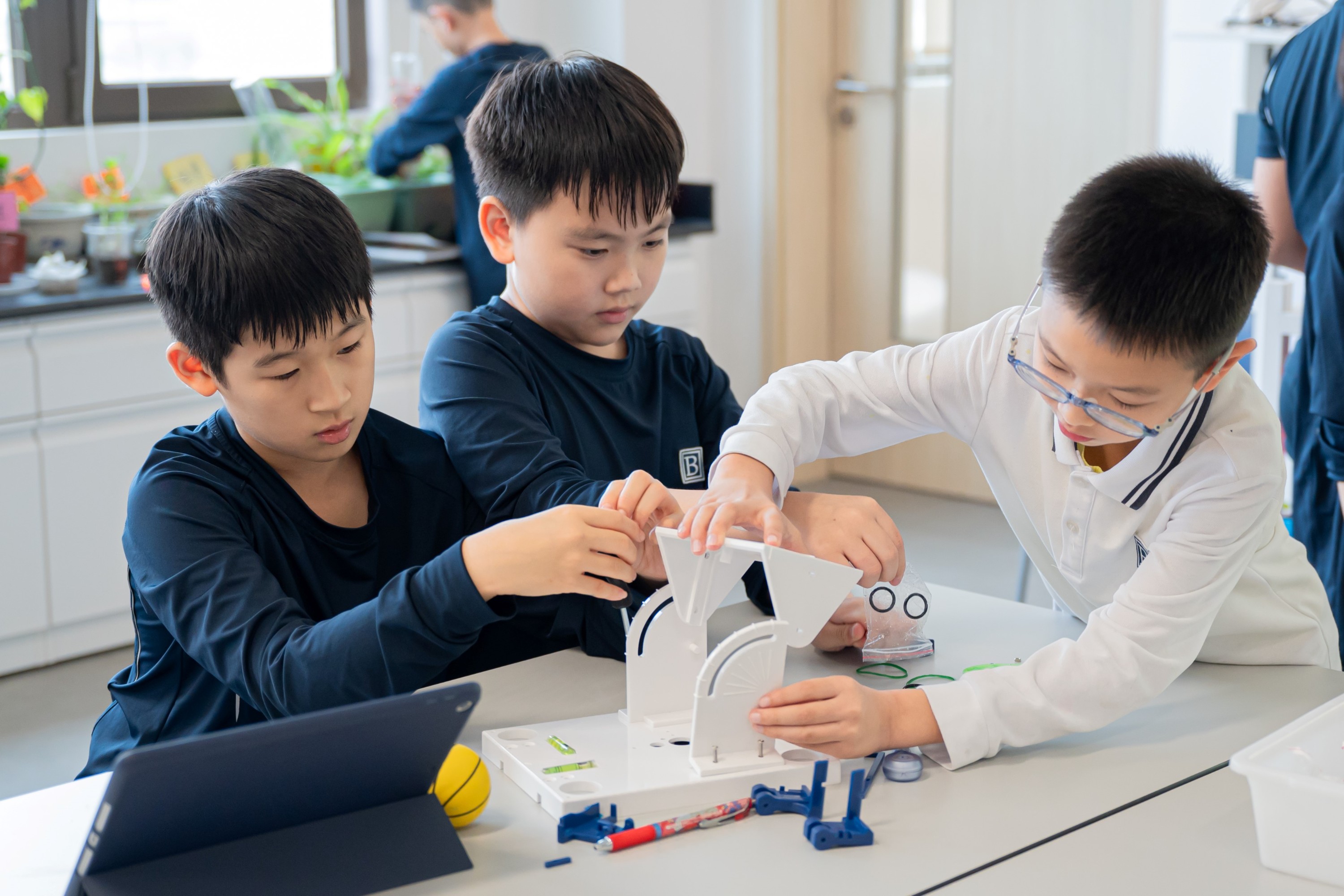
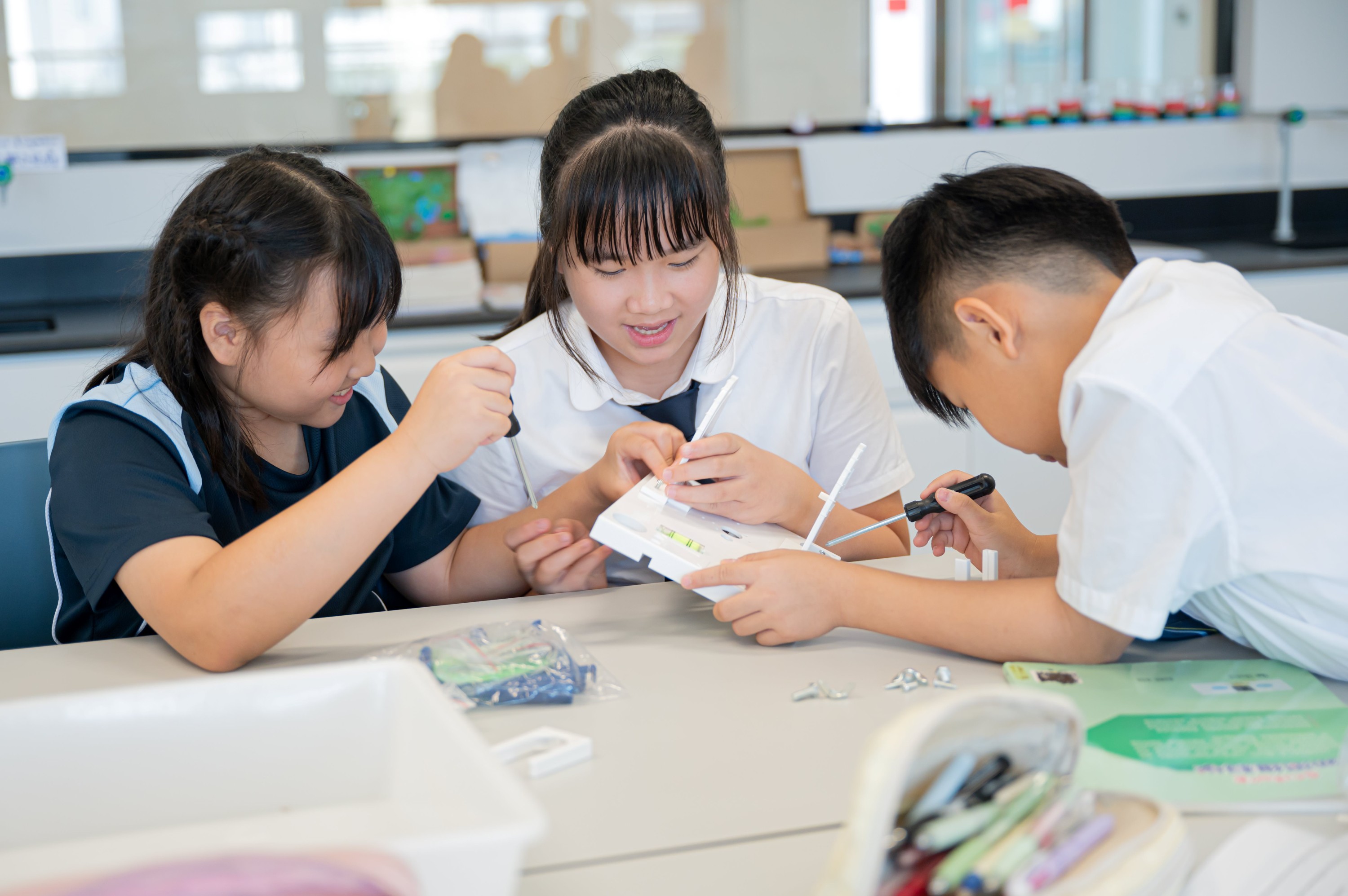

*They collaborated to assemble the rocket's power chamber, body, and launch pad
Afterwards, they moved outdoors, where new challenges emerged. Some rockets didn’t launch as expected, some failed to reach sufficient height, and others leaked during pressurisation.
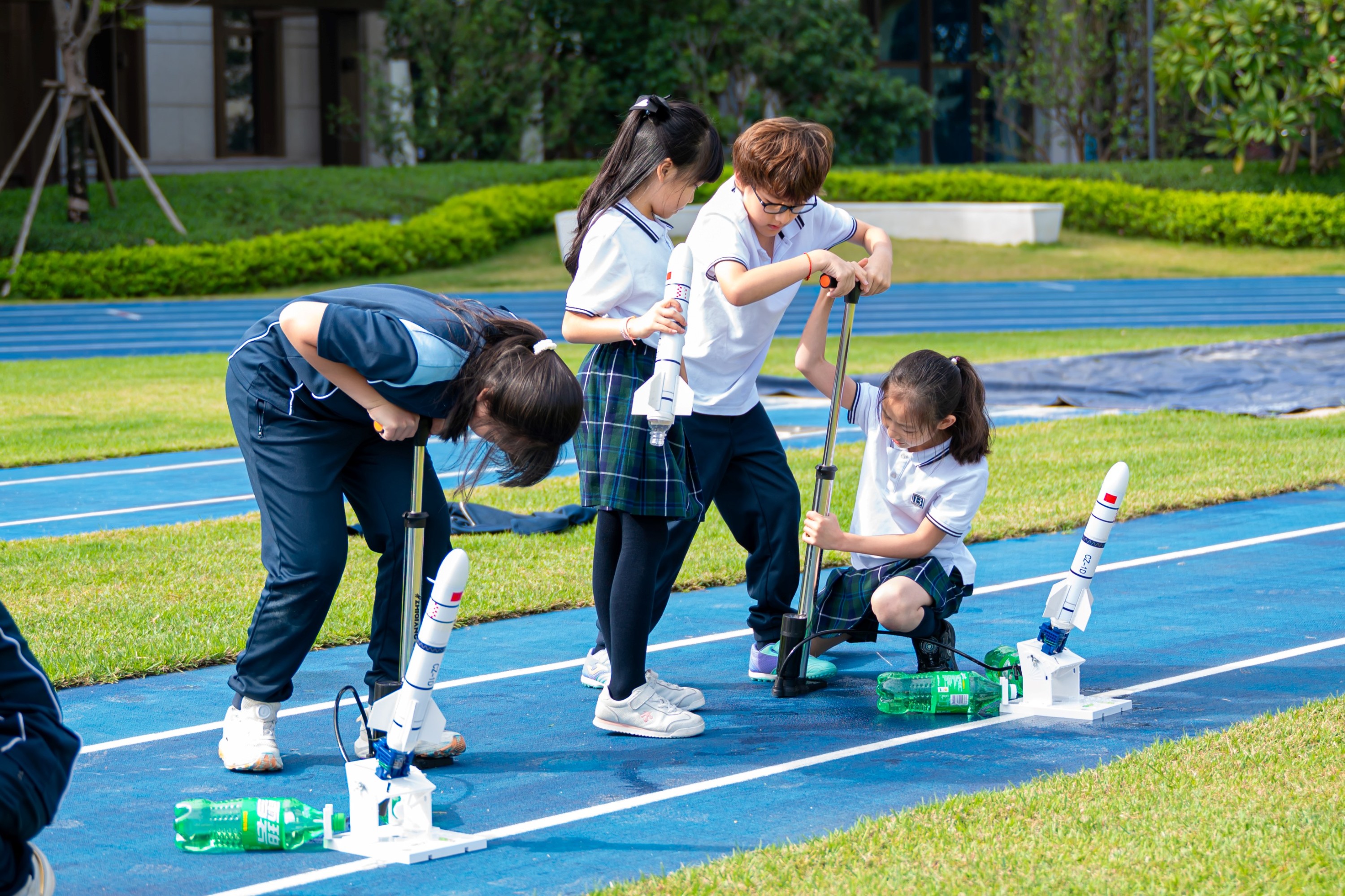
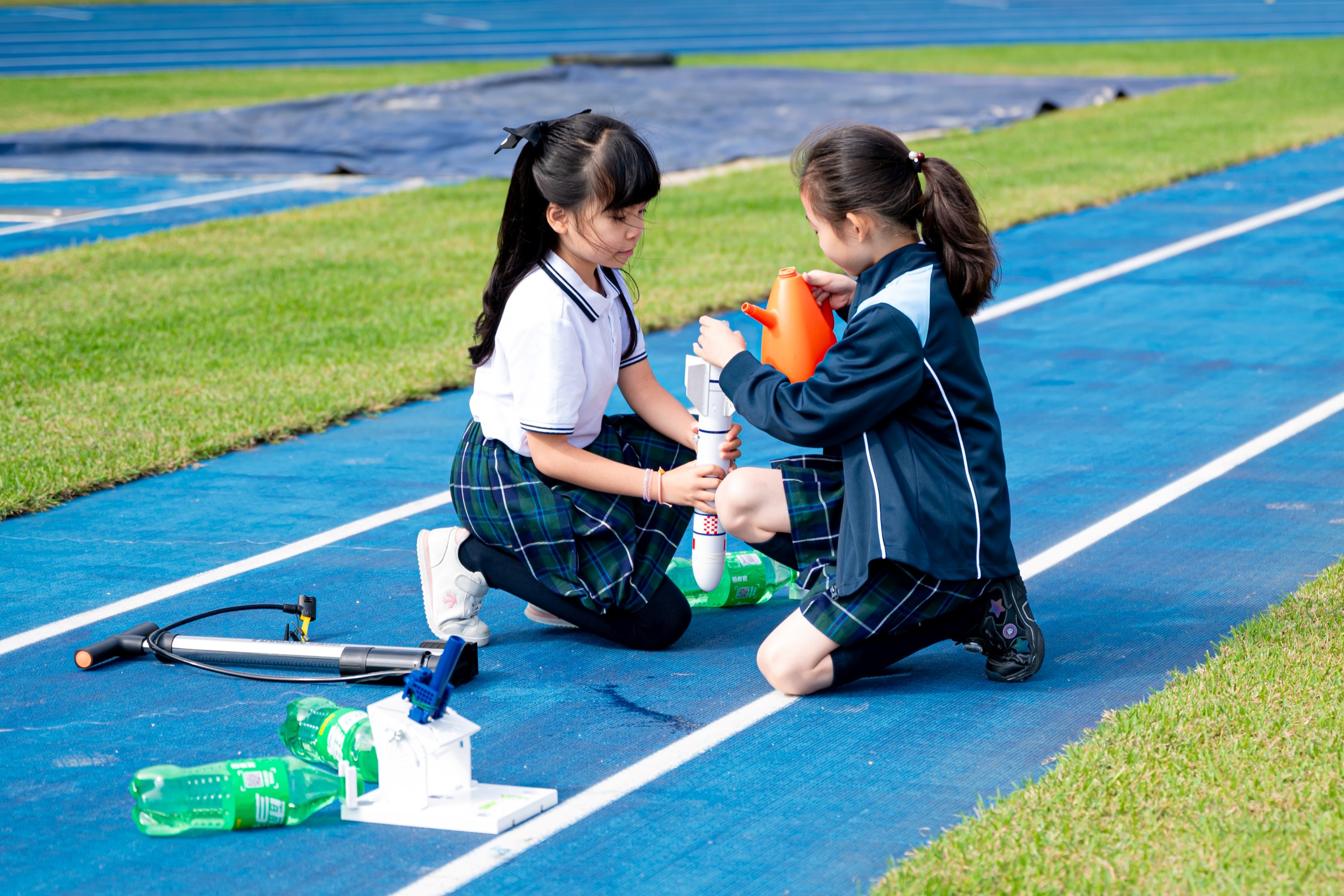
Students investigated the issues: some checked for airtight seals, while others collaborated to increase pressure for underperforming rockets.
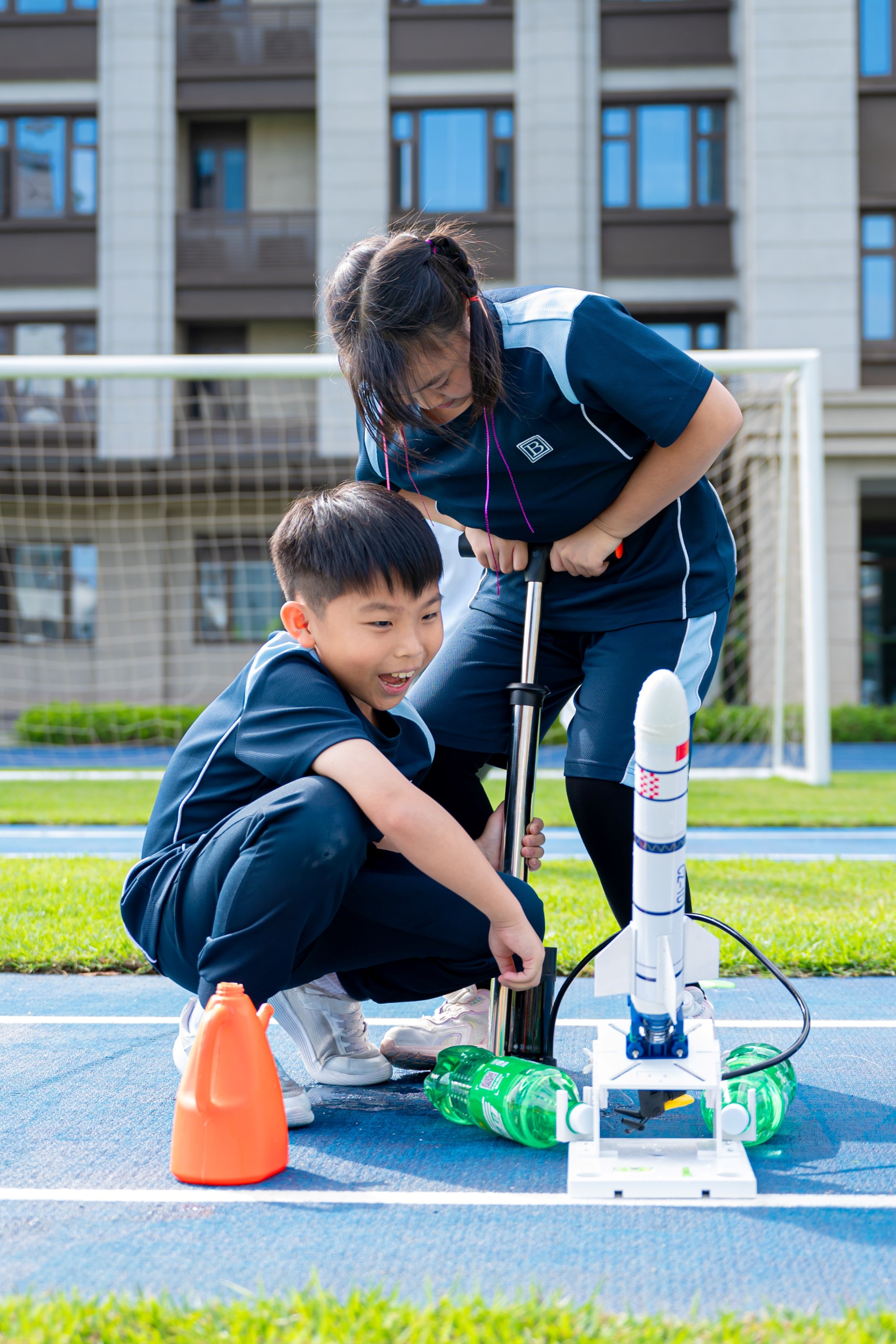
After several attempts, every rocket launched successfully. Their joy was overwhelming.
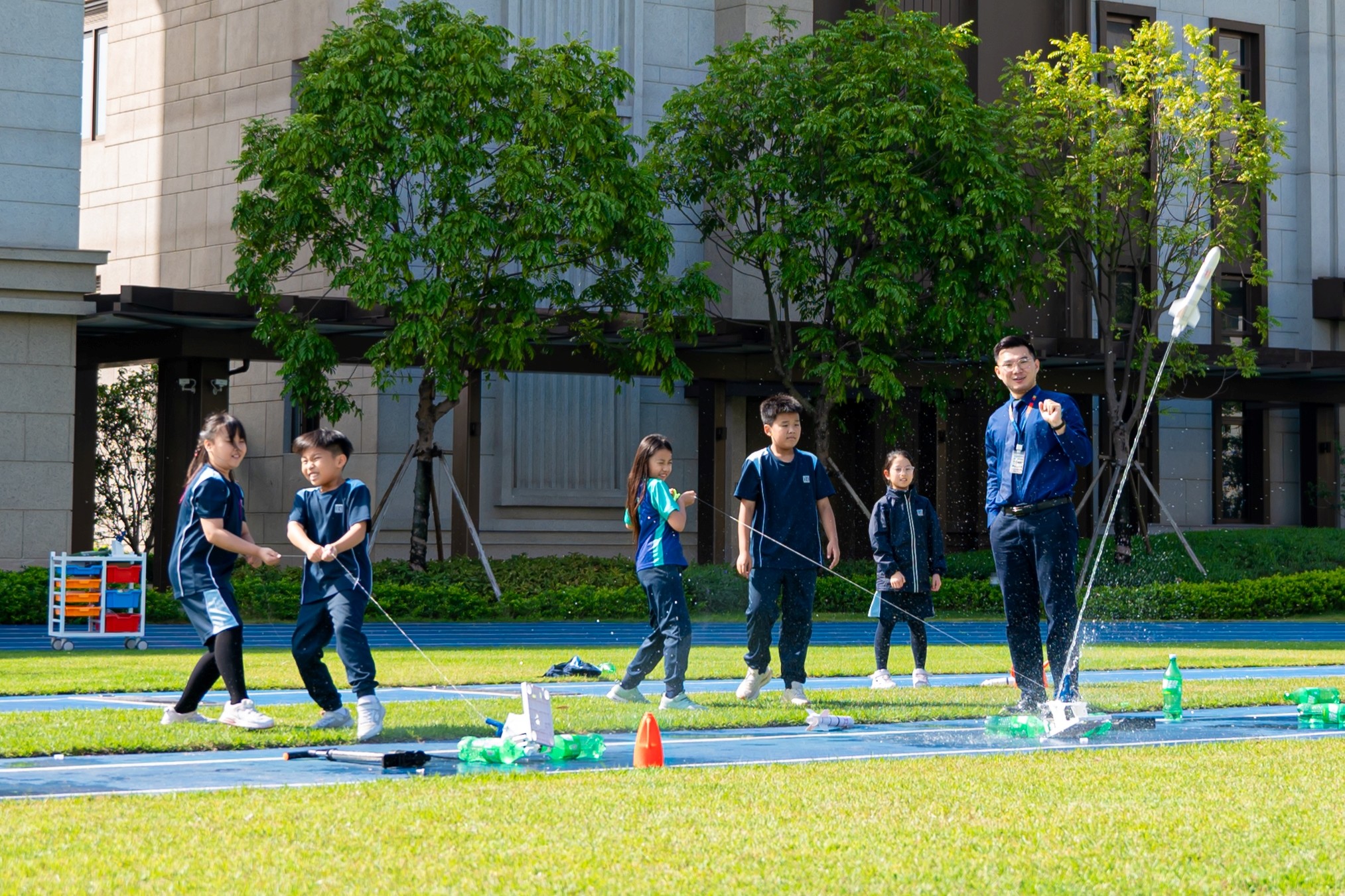
This success inspired further exploration. Students adjusted angles, water volume, and pressure to compete for the longest launch distance. Through this process, they figured out the secrets to success and verified the predictions they had made before the experiment.
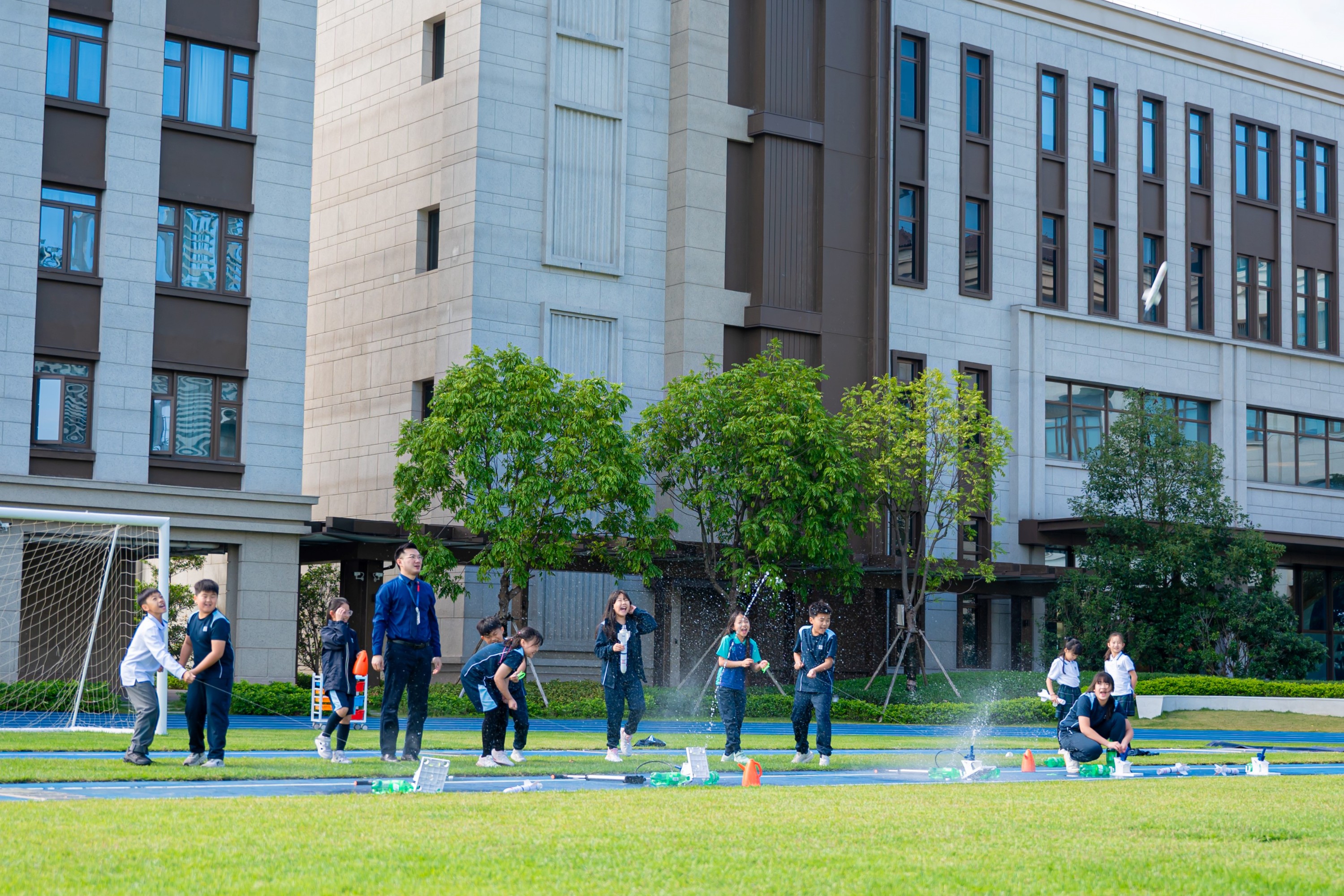
Everyone had an awesome time. Driven by curiosity and a desire to explore, the students naturally acquired new knowledge. This was exactly what our teachers had intended for in their lesson design.
Think Like A Scientist
Students often perceive science teachers as being full of "tricks."
“Direct experiences help students understand abstract concepts. This is why we often set up experimental activities for them. This approach taps into their innate curiosity and encourages active observation and thinking. It also enhances classroom interaction, making the learning process more enjoyable,” Ms. Li shared.
“When designing experiments, we aim to connect knowledge to everyday life while also making full use of laboratory facilities. This gives students unique experiences, such as the water rocket and flour explosion experiments. These activities allow them to experience the allure of science and ignite their desire to explore.”
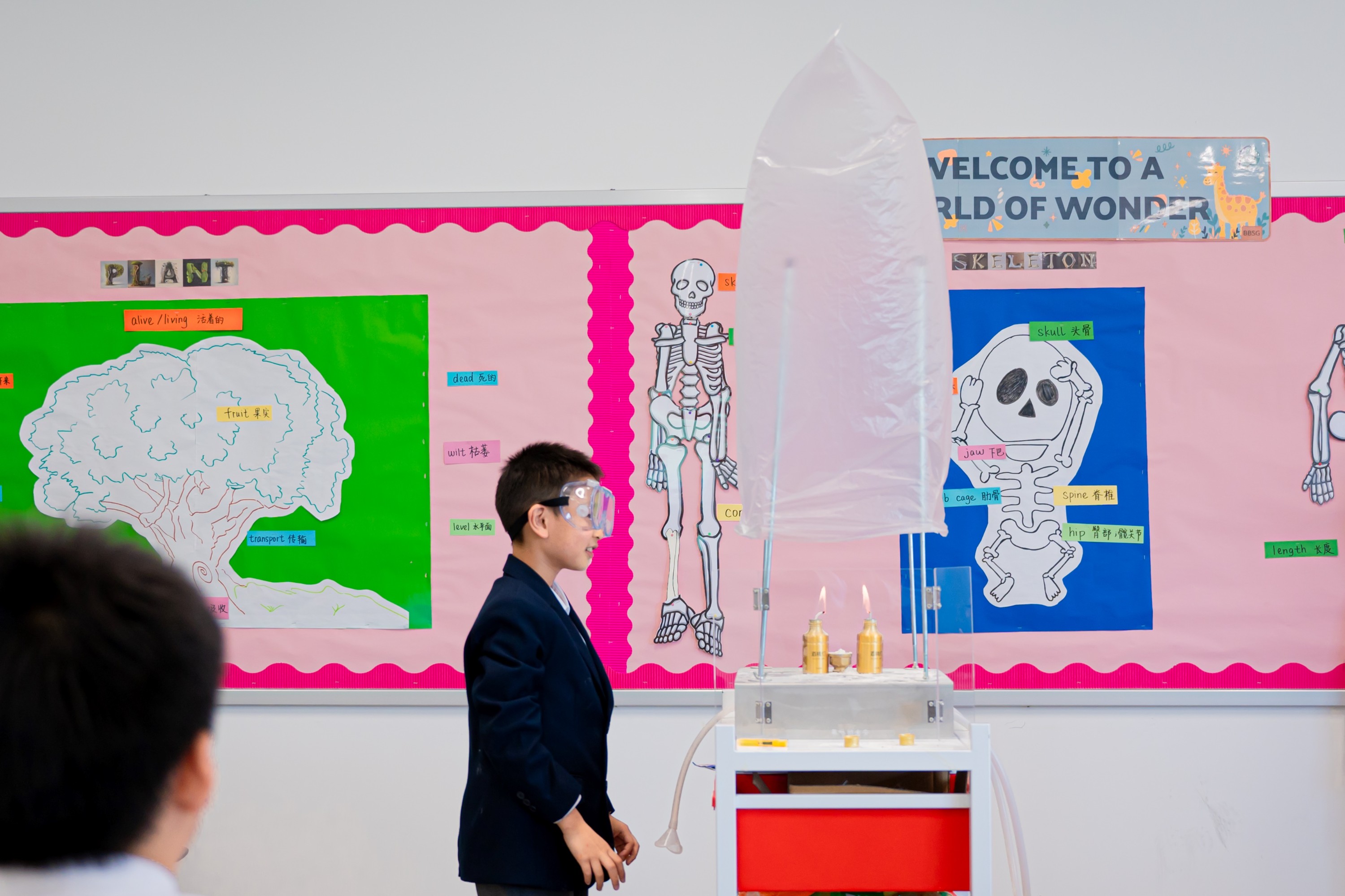
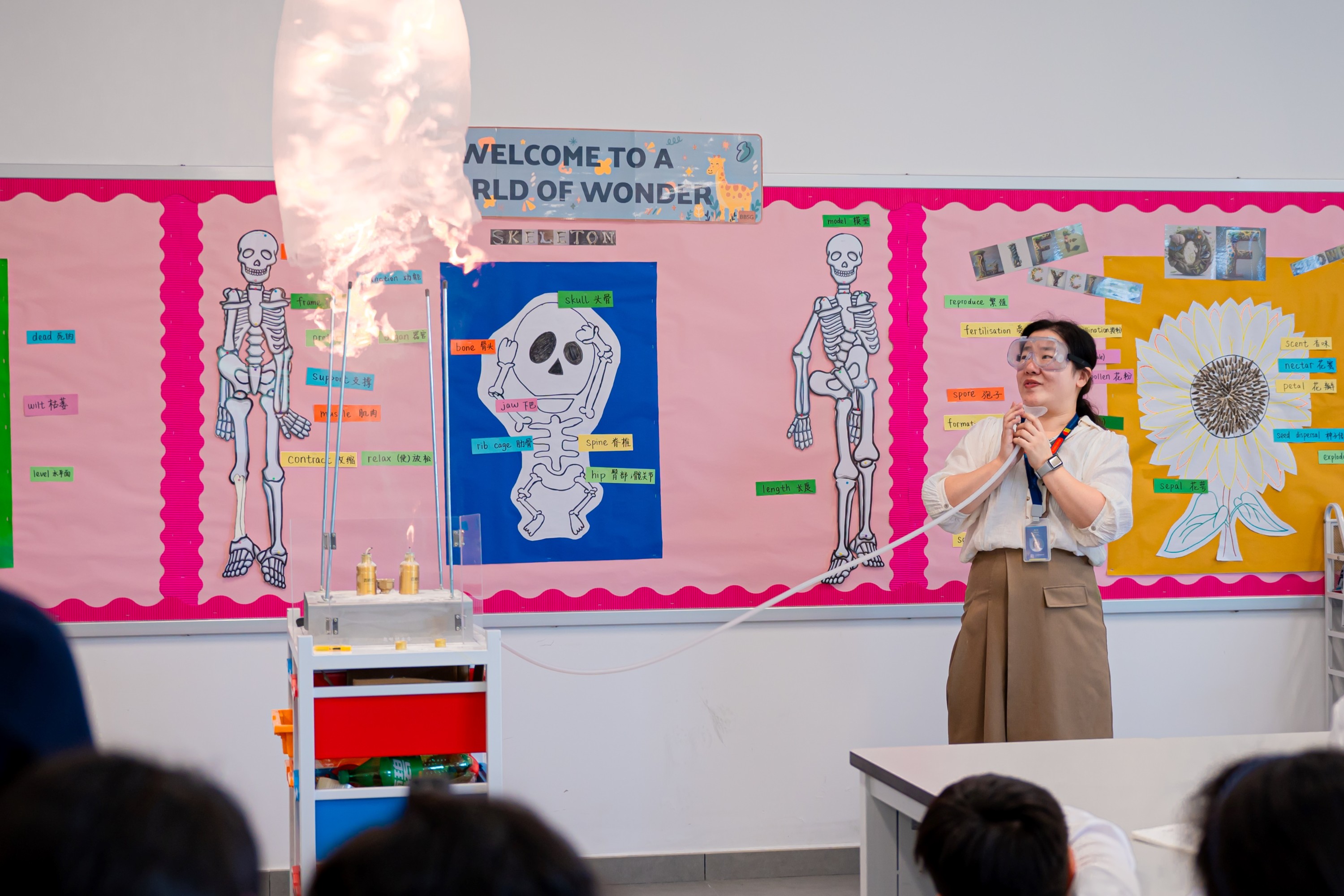
The "water rocket" project exemplified interdisciplinary learning.
In designing and building the water rockets, students applied concepts from physics, engineering, and mathematics. By measuring the length of the rocket body, reading the barometer, and calculating the launch height, they enhanced their understanding. They also developed practical skills and problem-solving abilities.
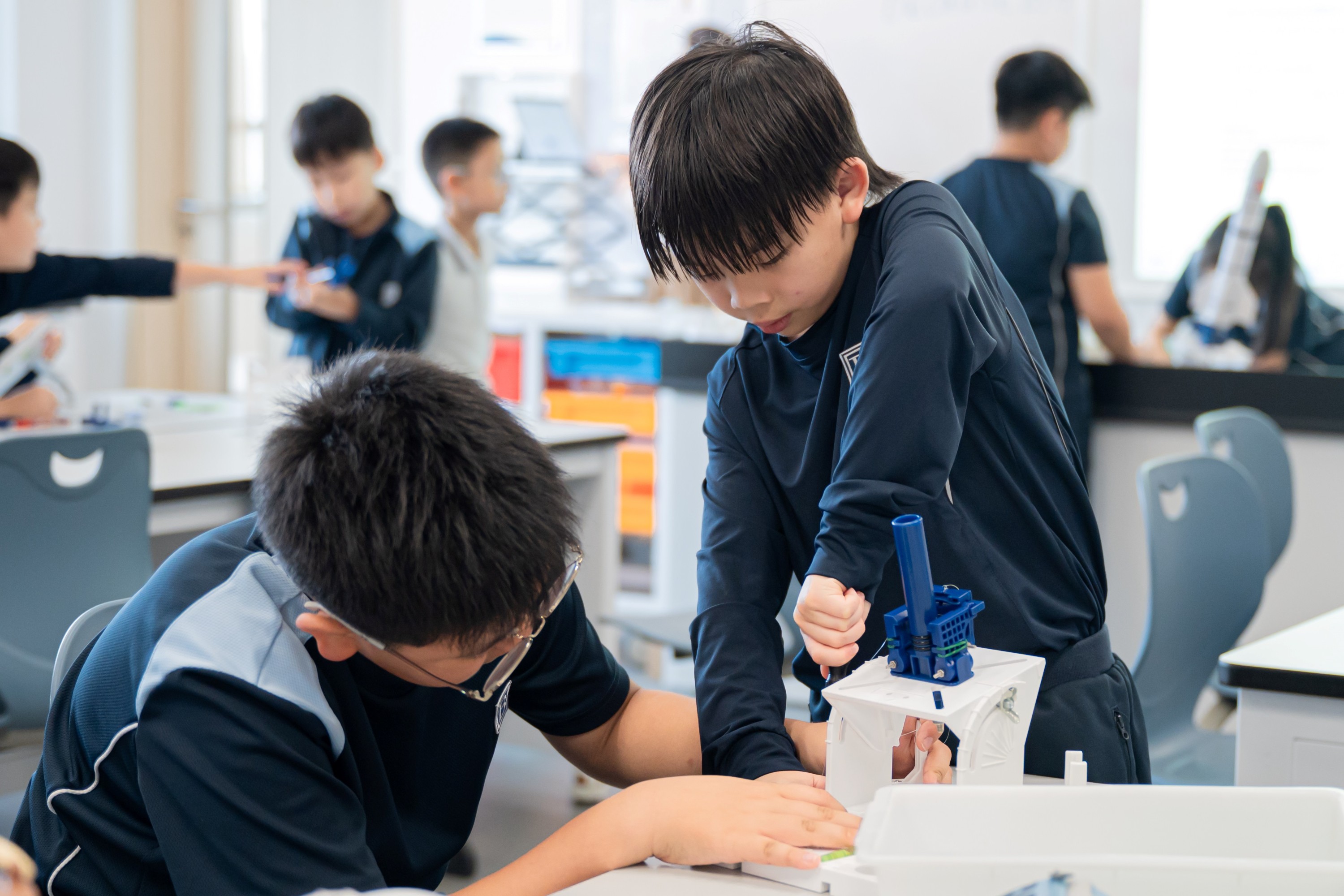
Mr. Lao explained that one of the most important skills in engineering is “problem-solving.” This involves creatively proposing ideas and hypotheses and testing them through practice. “Teamwork is also crucial in engineering. I’m pleased to see that our students demonstrate proactive thinking when faced with challenges. They also support and encourage one another, embodying BBSG’s values of Learning, Empathy, and Talent.”
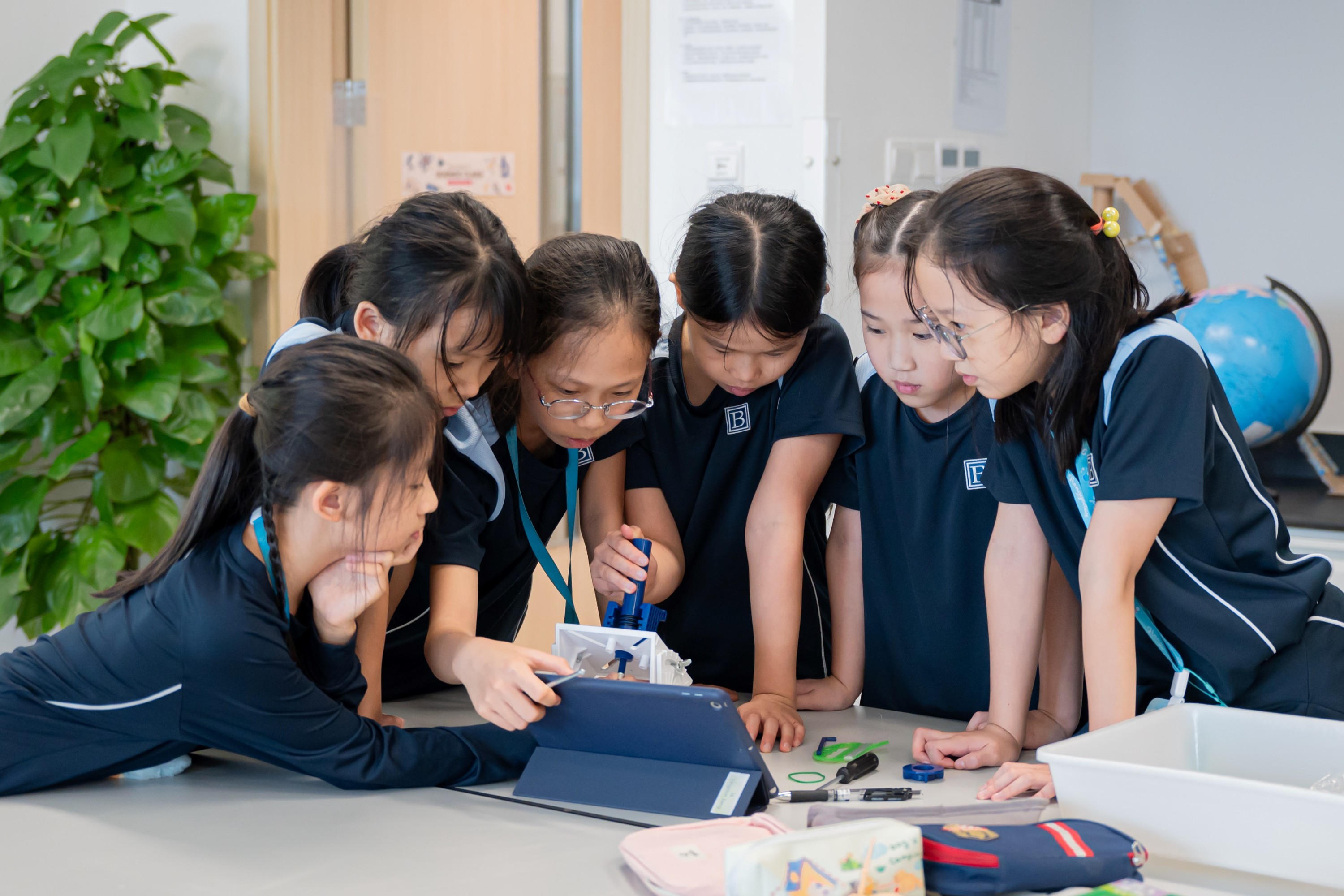
At BBSG, the goal of science classes is not just to impart knowledge but to nurture students’ scientific literacy. We aim to teach them to think like scientists, viewing the world through principles and fundamentals. Our teachers are committed to sparking curiosity in real-world contexts. They encourage students to explore actively while developing their problem-solving skills and scientific mindset. These "soft skills" empower each student to handle any challenges they may encounter in the future.


